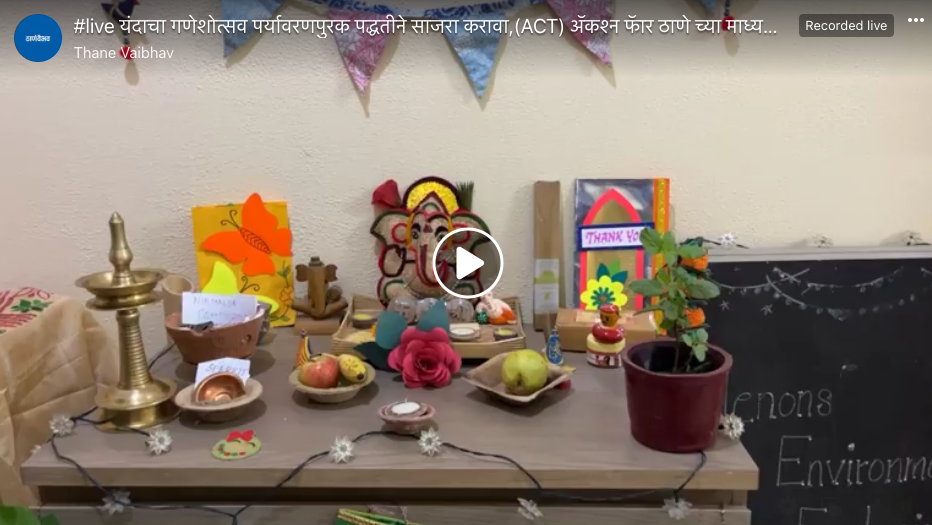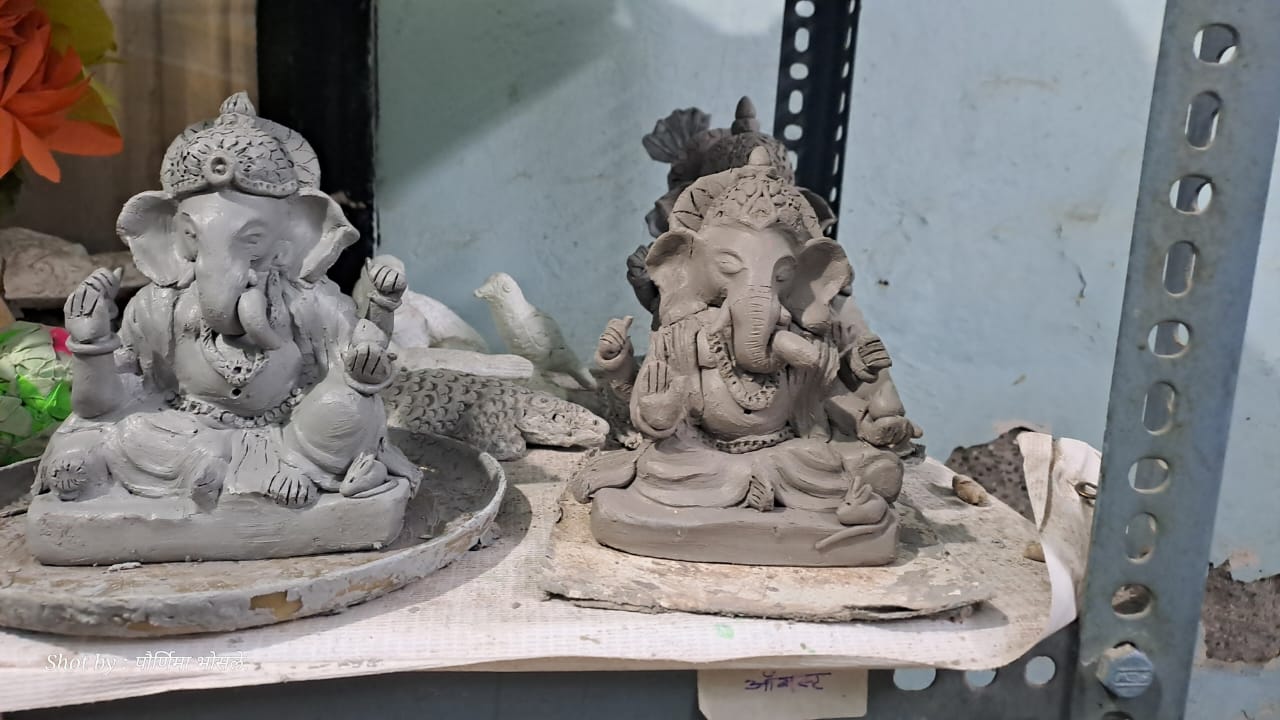THANE
Thane Clay Collection Centers Locations Housing Societies
Dates of collection : 13th September 4 pm to 8 pm
Clay collected at these immersion tanks will be returned to artisans and architects for reuse
| Collection Centre Name (Society) | Centre Incharge & Number |
|---|---|
| Cosmos Heritage | Shrilatha Menon +91 96195 52221 |
| Brahmand Phase 7 | Shrilatha Menon +91 96195 52221 |
| Vraj Green valley | Shrilatha Menon +91 96195 52221 |
| Elite Plantina | Shrilatha Menon +91 96195 52221 |
| Vikas Complex | Shrilatha Menon +91 96195 52221 |
| Mairti Batiks CHS Kalwa | Shrilatha Menon +91 96195 52221 |
| Cosmos Horizon | Shrilatha Menon +91 96195 52221 |
| Highland Gardens | Shrilatha Menon +91 96195 52221 |
| Everest World | Shrilatha Menon +91 96195 52221 |
| Kores Tower | Shrilatha Menon +91 96195 52221 |
| Highland Residency | Shrilatha Menon +91 96195 52221 |
MAP OF PMC COLLECTION CENTERS Dates of collection : 31st August, 2nd and 6th September 2025
Campaign Partners

CONTACT: Shreelata Menon: 96195 52221
Campaign Activities
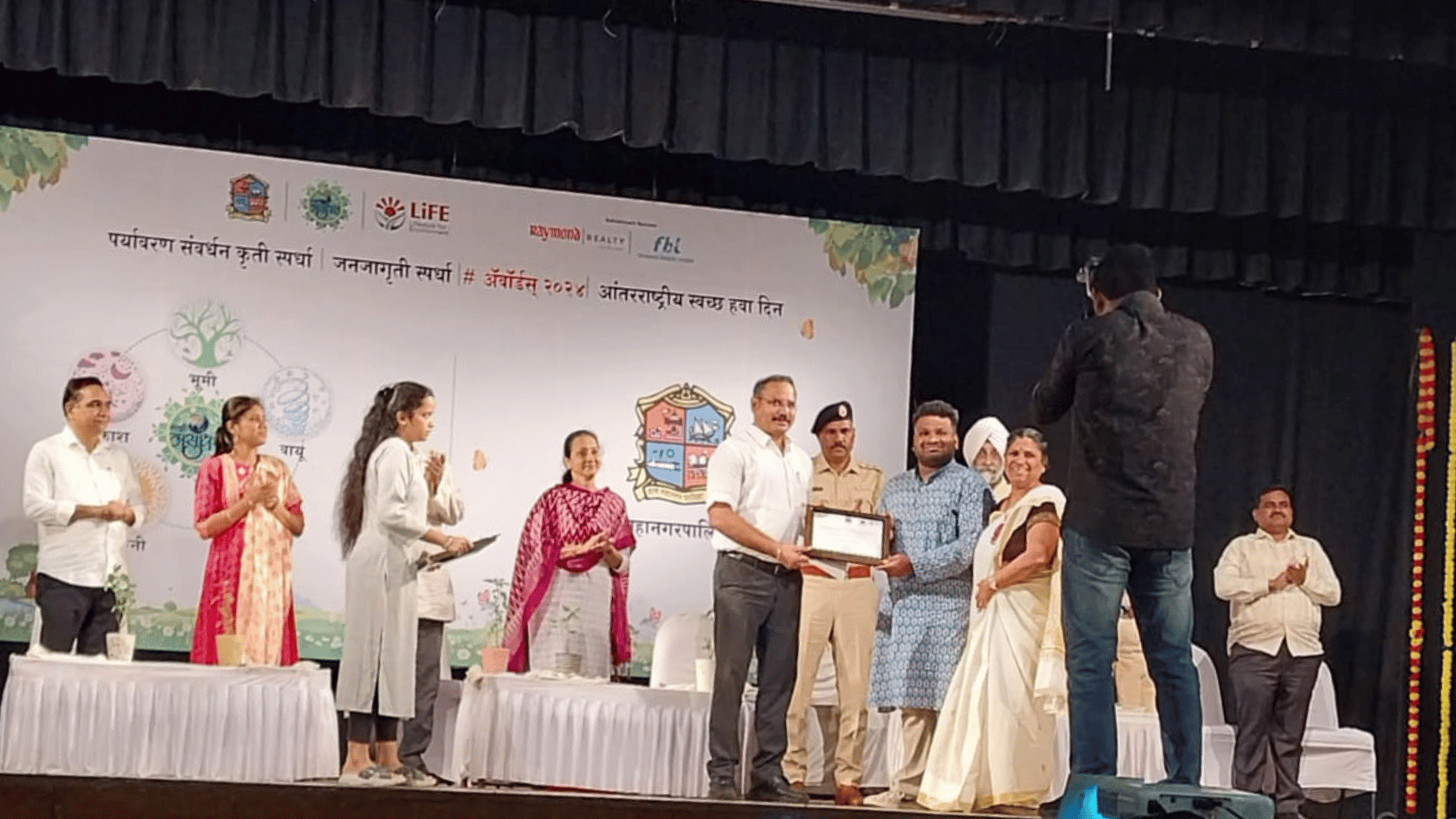
Our Thane environmental efforts won 3rd place in the TMC's Maji Vasundhara competition
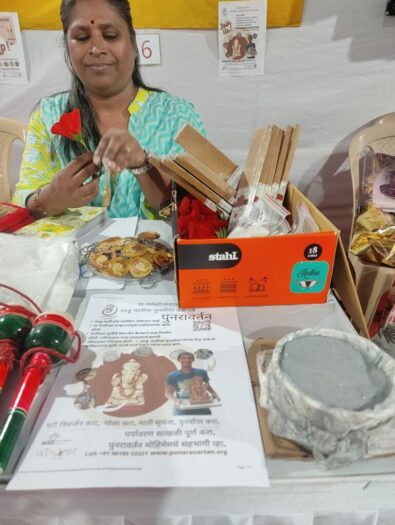
Display of Punaravartan at Artha Expo
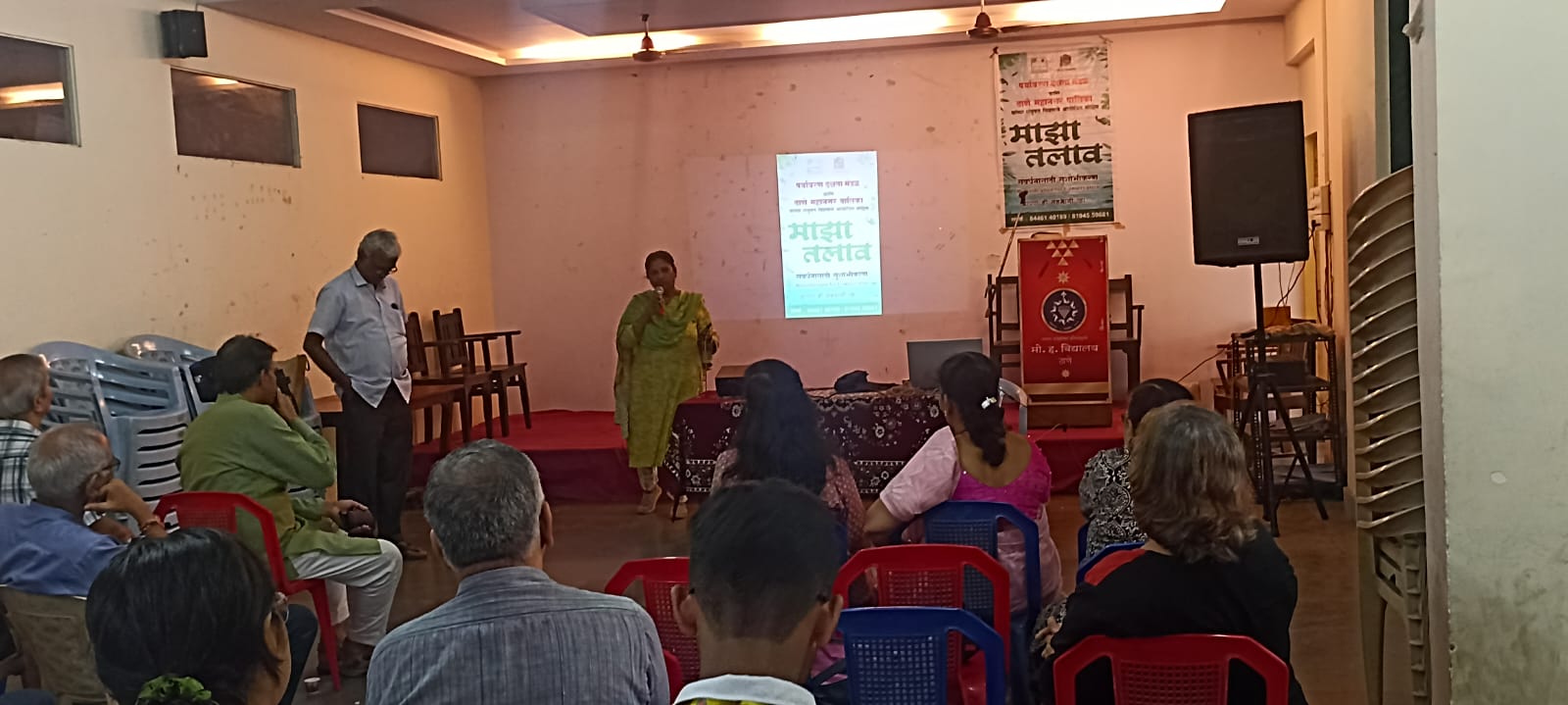
Presentation to the Majha Talav group in Thane
Thane Creek
The wetland of most significance in Thane is the Thane Creek – it is a sanctuary for flamingoes and other important bird species. It features on the list of Important Bird and Biodiversity Areas (IBAs). Its mangrove forests provide nurseries for several fish species, and it also acts as a natural buffer against floods, cyclones and sea water intrusions. It has a rich biodiversity and is one o fthe largest creeks of Asia.
Read more on the Ramsar Sites Information Service
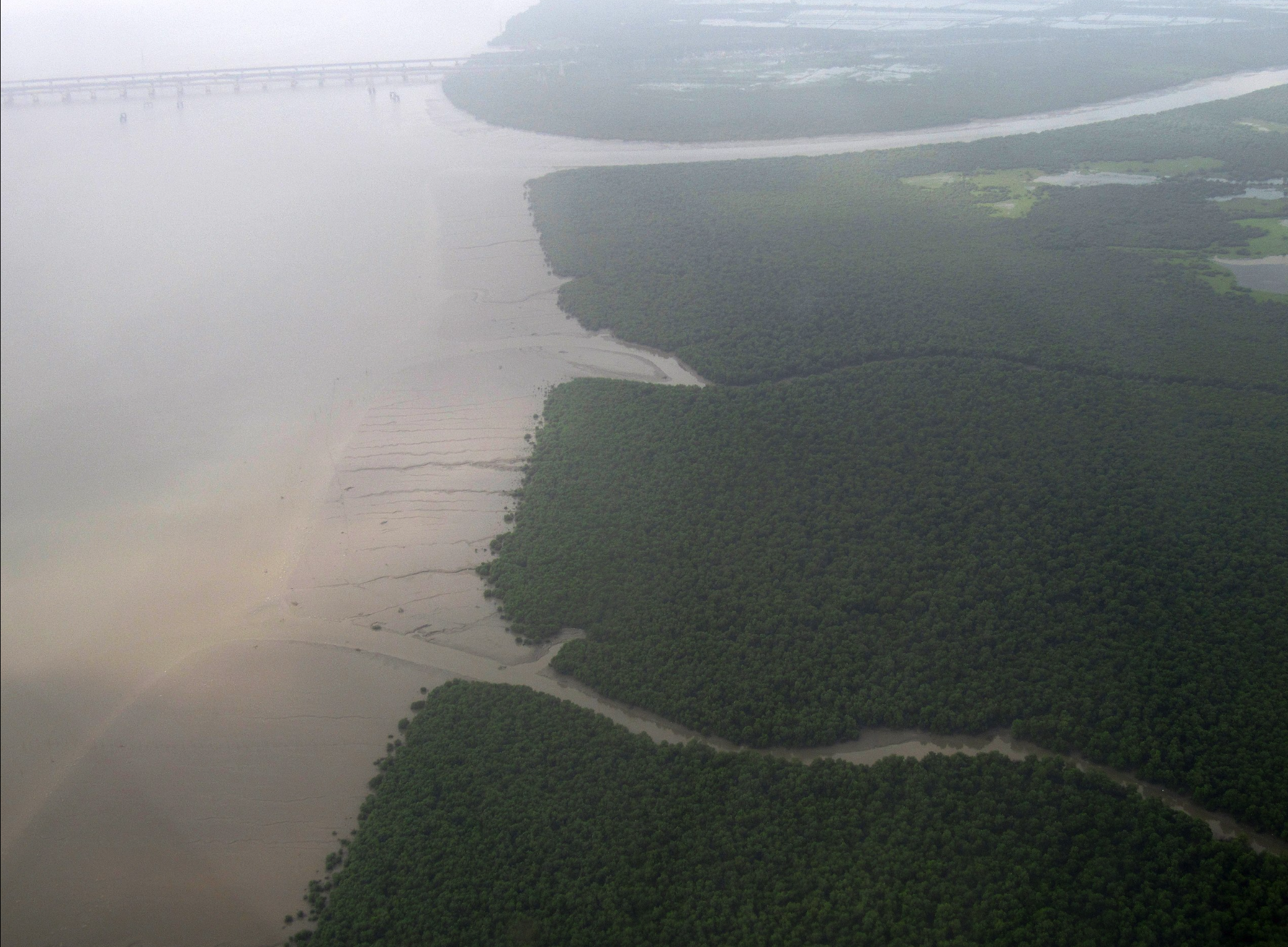
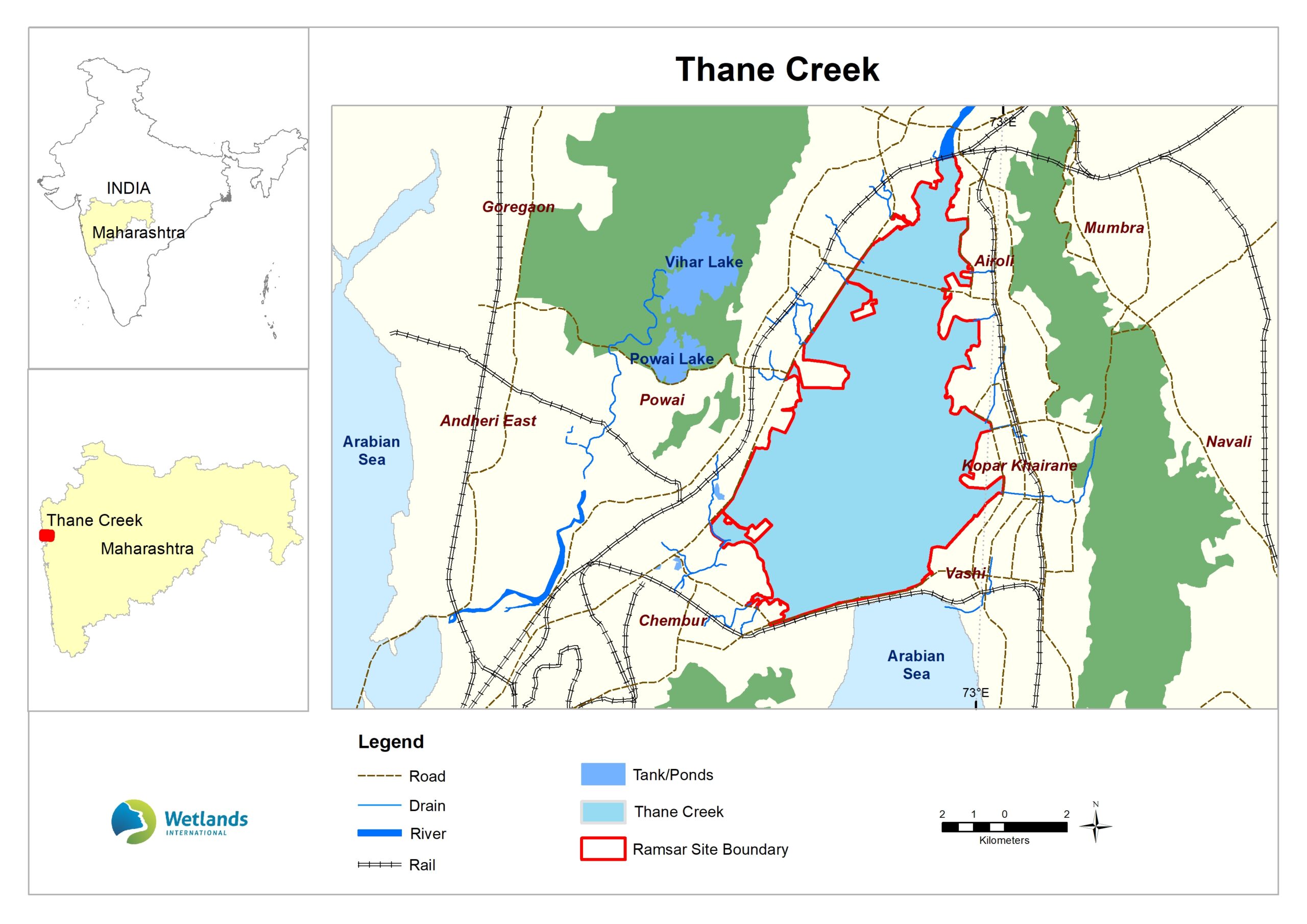
The Thane Creek becomes a dumping site for immersion water and waste from the Ganesh festival – see article below.
Lakes of Thane
Thane also hosts several lakes of which the Masunda lake and the Upvan Lake are the largest. Nearly 35 lakes – small and large – exist in this city and become destinations for Ganesh immersion.
To protect these water bodies from pollutions the Thane Municipal Corporation has been constructing temporary immersion tanks however the manner of disposal of the material collected in these immersion tanks is still unclear.
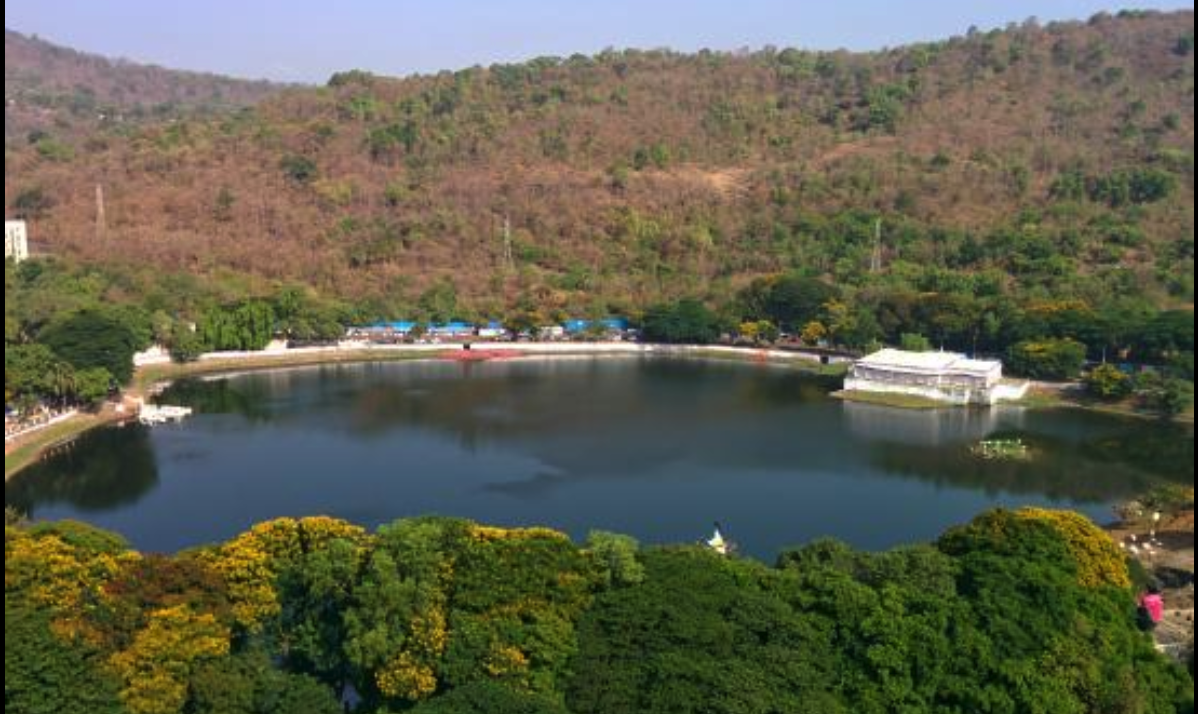
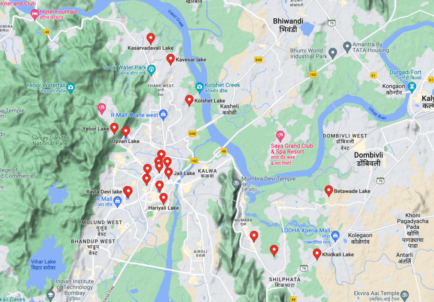
Material Used
In Thane, the materials used to craft Ganesh idols reflect a blend of tradition and environmental awareness. Plaster of Paris (PoP) remains widely used due to its affordability and the fine detailing it allows in idol creation. However, PoP’s inability to dissolve easily in water poses significant environmental concerns during idol immersion. In response, there has been a growing shift towards more sustainable materials. Natural clay, known as Shadu clay, is increasingly popular for its eco-friendly properties, as it dissolves completely in water and minimizes pollution. Additionally, paper mache idols, made from paper pulp and natural adhesives, offer a biodegradable and lightweight alternative. Some artisans in Thane are also exploring innovative materials such as cow dung, coconut coir, and natural plant-based dyes to create environmentally friendly idols. This movement towards using eco-friendly materials underscores a broader commitment within the community to protect the environment while preserving the cultural and religious significance of Ganesh Chaturt
Government Action
Ahead of the immersion of Lord Ganesha on Anant Chaturdashi, environmental activist Rohit Joshi from Thane’s Wetland Committee has alleged that the new government has lifted the ban on Plaster of Paris (PoP) Ganesha idols, disregarding regulations. The National Green Tribunal (NGT) issued strict orders to the municipal administration regarding the direct immersion of PoP idols in Thane Bay, which is a protected flamingo sanctuary.
In 2020, the Central Pollution Control Board (CPCB) banned PoP idols to prevent water pollution. The Maharashtra Pollution Control Corporation has directed the Thane Municipal Corporation to submit a compliance report within two weeks, monitoring the measures taken.
The Central Pollution Control Board’s 2020 guidelines mandate the use of natural, biodegradable materials for idol-making. Despite these regulations, Joshi claims the new government has ignored the ban on PoP idols, leading to continued environmental harm. The NGT has ordered strict adherence to the Environment Protection Act and CPCB’s 2020 guidelines on idol immersion.
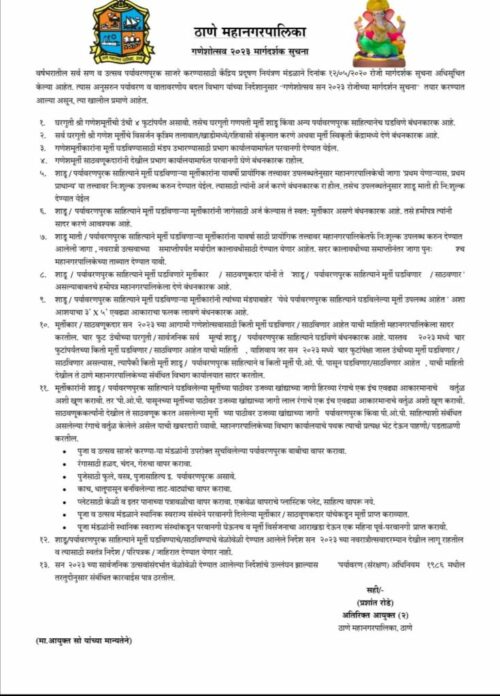
Contacts
NAME
Shreelata Menon
Vishal Shinde
PHONE
96195 52221
79774 72486
